What to Eat and What Not to Eat with CKD: Produce
For individuals with chronic kidney disease (CKD), the food they eat can have a significant impact on their health and wellbeing. Knowing what to consume, as well as what to avoid, is key to preventing further complications from developing. In this article, we'll be exploring "What to Eat and What Not to Eat with CKD: Produce."
We'll go over some of the most beneficial produce for those struggling with CKD, as well as which types should be avoided in order to maintain optimal health. So let's dive in and learn more about how you can use your diet to support yourself or your loved one living with CKD!
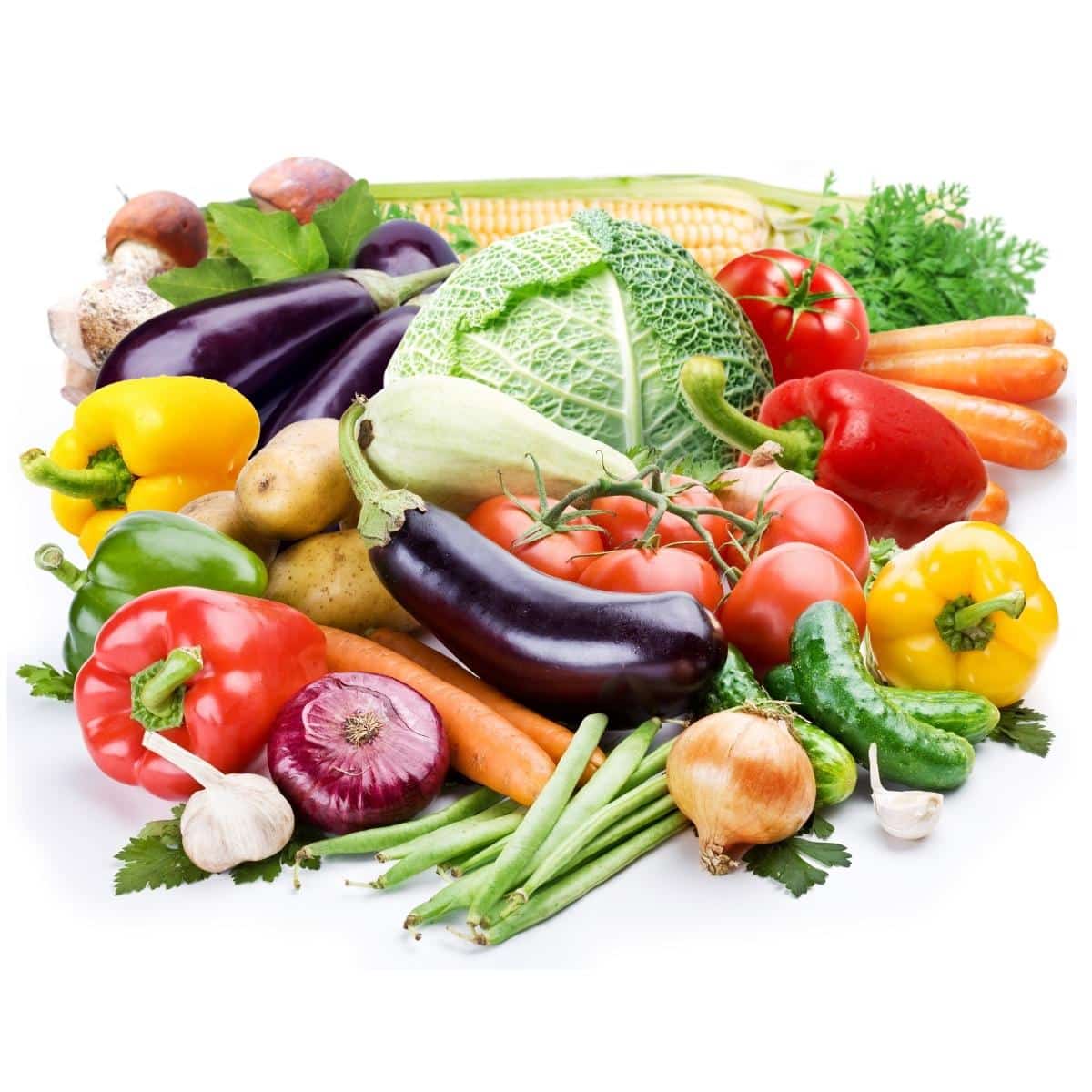
Jump to:
- Fruits To Include
- Berries
- Grapes
- Fruits To Avoid
- High-Potassium Fruits
- High-Phosphorus Fruits
- Vegetables To Include
- Low-Potassium Vegetables
- High-Fiber Vegetables
- Iron-Rich Vegetables
- Vegetables To Avoid
- White Potatoes
- Legumes And Beans To Include
- Beans
- Lentils
- Legumes And Beans To Avoid
- Navy Beans
- Lima Beans
- Herbs And Spices To Include
- Herbs And Spices To Avoid
- Nuts And Seeds To Include
- Why You Should Avoid Certain Foods
- Can You Eat Some Things In Moderation?
- Fruits
- Vegetables
- Grains
- How Does My Stage Of CKD Affect What I Eat?
- FAQs for What Produce to Eat or Not Eat on CKD
- Enjoy Healthy Produce With Your Renal Diet
Fruits To Include
Eating a variety of fruits is important for CKD patients, but be sure to avoid any fruits that contain high amounts of potassium.
Berries are a great option for CKD patients, as they are low in potassium, but still contain high amounts of vitamins and minerals. Grapes are a great option for people with CKD as they are high in vitamins and antioxidants.
Citrus fruits should be consumed in moderation, as they can be high in potassium. Apples, pears and pineapples are all good choices for CKD patients, as they are low in potassium and high in fiber. While fruits are a great way to get vitamins and minerals, it's important to also include other sources of nutrition for a balanced diet.
For More Recipes and Ideas --->> Get Your Free Meals and Recipes That Are Perfect for Pre-Dialysis Diets, Pre-Dialysis with Diabetes, or Dialysis Diets.
Berries
Are berries high in potassium? Berries are one of the best fruits to include in a CKD diet. Not only do they come from organic production, but they have many health benefits that can be beneficial for those who suffer from this condition.
Berries are relatively low in sugar content and higher in nutrients than other types of fruit, making them ideal for balancing taste preferences with portion sizes.
Some people may find their tartness off-putting at first, but once you get used to it, berries provide a unique flavor profile that's both refreshing and satisfying!
Ultimately, adding berries into your regular diet is a great way to reap all of the amazing health benefits while still keeping your portions under control.
Grapes
Grapes are another great option for those on a CKD diet. Grapes are a good source of vitamins A and C, potassium, and fiber. These nutrients are important for maintaining healthy skin, eyesight, and immune function, as well as regulating blood pressure and digestion.
They're high in dietary fiber and low in calories, making them an ideal choice when it comes to portion size. Whether you choose watermelon (is watermelon good for kidney disease?), honeydew, or cantaloupe, make sure you always read the food labels to check the quality of the melon before consuming it.
Food tracking is also essential when following any kind of diet - this way, you can keep track of how much of each type of fruit you’re eating so that you can get the most out of your meals while still staying within your health goals.
With these tips in mind, there's no reason why adding some delicious freshness to your daily routine should be difficult!
Fruits To Avoid
First, let's talk about high-potassium fruits. Generally, you should avoid eating bananas, honeydew melons, and other fruits that have a high potassium content.
Then, we'll discuss high-phosphorus fruits. Passion fruit, avocados, and guavas are just some of the fruits that have a high phosphorus content, so you should also steer clear of them. Let's keep this conversation going to figure out what are kidney friendly fruits.
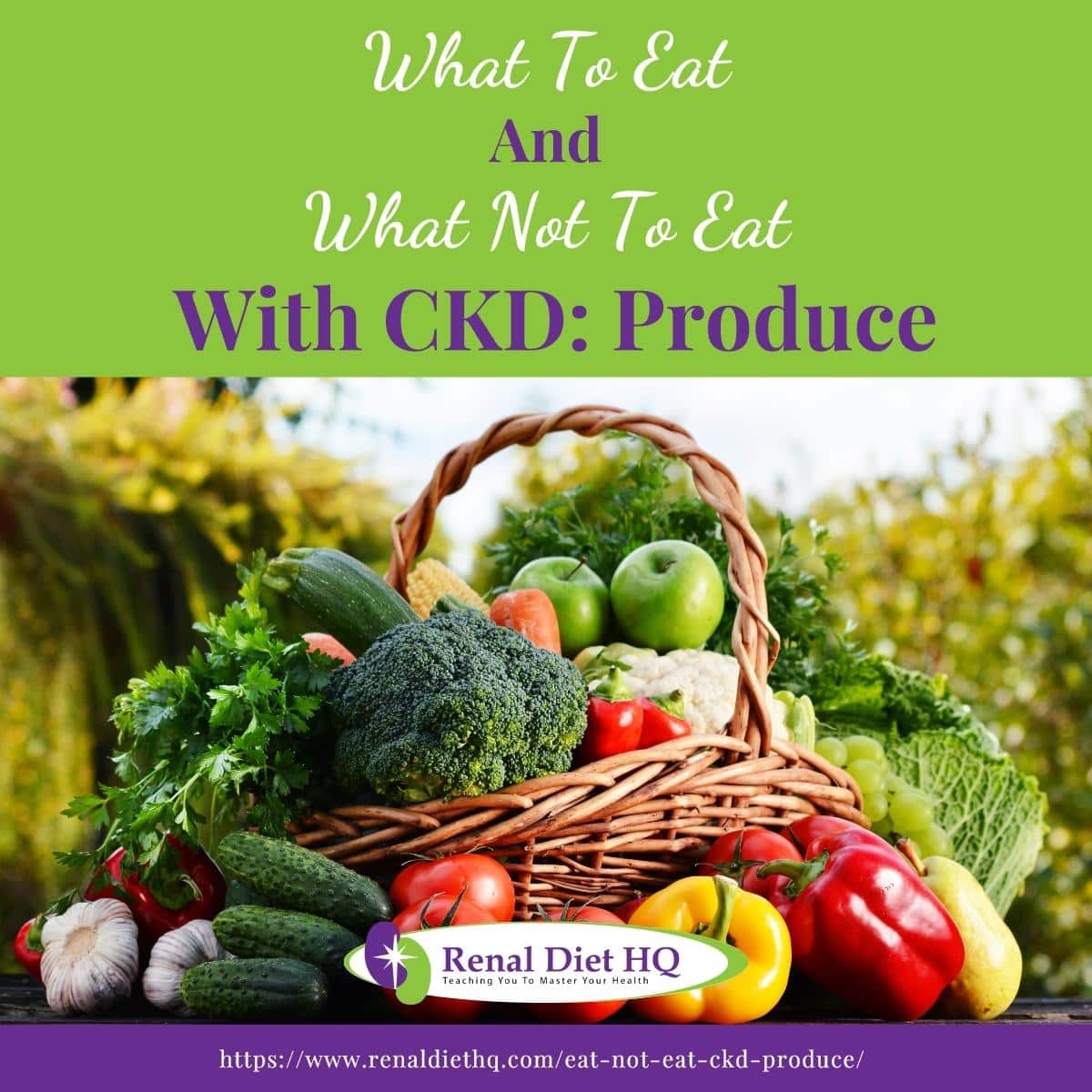
High-Potassium Fruits
It's important to be mindful of what you're eating when living with CKD. Some fruits are high in potassium and should be avoided or consumed in small portions. High-potassium fruits include bananas, dried fruit such as raisins and apricots, kiwi, oranges, cantaloupe, honeydew melon, prunes, dates, plums and avocados.
Eating these foods safely involves portion control for CKD patients and reading food labels for nutrition advice. When consuming any type of food with CKD it is essential to avoid overeating by sticking to the recommended serving size indicated on the label.
Additionally, monitoring your intake of potassium sources can help ensure that you’re getting the right amount based on your individual needs. Taking time to understand which types of produce are safe for your diet will make eating a much more enjoyable experience!
High-Phosphorus Fruits
Now that we understand which high-potassium fruits to avoid, let's talk about another type of fruit to consider when living with CKD: high-phosphorus fruits such as passion fruit, avocados, pomegranates, guavas and kiwis.
Many types of produce naturally contain phosphorus, so it's important to understand the content and make substitutions when necessary.
Additionally, controlling cravings can be key - if you're feeling hungry between meals opt for low-phosphorus fruits such as apples and tangerines instead!
Ultimately, by taking time to learn what foods are safe for your diet and monitoring your consumption accordingly, you can ensure that you’re getting all the nutrients needed from a balanced meal plan.
Vegetables To Include
Low-potassium vegetables are a great choice for those with CKD, since they're low in sodium and provide essential vitamins and minerals. High-fiber vegetables should also be included in the diet, as they help to regulate blood sugar and provide important nutrients. These are the vegetables low in phosphorus and potassium.
Iron-rich vegetables are also beneficial, as they can help improve anemia which often accompanies kidney disease. In general, it's important to choose a variety of colorful vegetables to ensure you're getting a balanced diet.
Avoid those that are canned as they can be high in sodium or other unhealthy additives. Eating a variety of fresh, healthy vegetables can help those with CKD stay healthy and strong.
Low-Potassium Vegetables
When it comes to eating out, grocery shopping, and meal planning with CKD, low-potassium vegetables should be at the top of your list! Whether you are looking for a quick snack or want to whip up some delicious kidney friendly recipes, these vegetables can help ensure that you keep your sodium intake in check.
Vegetables like broccoli, bell peppers, carrots, Brussels sprouts, cauliflower and cucumbers all provide essential vitamins and minerals without being overly high in potassium. They also provide fiber which helps slow down digestion and keeps blood sugar levels stable. Additionally, they make great additions to salads and stir-fries alike!
If you're looking for more ways to incorporate low-potassium veggies into your diet, consider roasting them in the oven or adding them to soups.
You could even try spiralizing them as a healthier alternative to traditional pasta noodles – there's no shortage of options when it comes to making meals that are both tasty and CKD-friendly!
High-Fiber Vegetables
Now that we've explored some low-potassium vegetables, let's turn our attention to high-fiber veggies. Eating more fiber can help reduce your risk of heart disease and diabetes, which often accompany kidney disease.
It's important to pay close attention to the portion size when consuming these foods, since too much fiber at once can lead to gastrointestinal problems.
When looking for high-fiber options, try cooking methods such as steaming or roasting which will help preserve their nutritional content. Finally, make sure you read food labels carefully so you know exactly what is in each item.
Iron-Rich Vegetables
Now that we've discussed high-fiber vegetables, let's look at another important nutrient: iron. Consuming enough iron is essential for kidney patients, as kidney disease often causes anemia.
Plant-based proteins such as beans, lentils, nuts, and seeds are all great sources of iron. Eating organic produce whenever possible can ensure you're getting the highest quality nutrition available.
It's also beneficial to get outside and enjoy some sunshine – vitamin D helps with absorption of minerals like iron! With these tips in mind, you'll have no problem finding delicious ways to meet your daily requirements for this vital mineral.
Vegetables To Avoid
White potatoes are high in potassium, so they should be avoided by those with CKD. Eating a variety of vegetables is important for a balanced diet, so it's important to find alternatives to these three vegetables.
Leafy greens, cauliflower (cauliflower renal diet), and squash are just a few options to include in your diet. Lastly, it's important to talk to your doctor or a dietitian to get personalized advice for your individual needs.
White Potatoes
White potatoes are a staple of many diets, but unfortunately they may not be the best option for those with CKD.
With their high glycemic index and potassium levels, white potatoes can cause significant spikes in blood sugar that could be dangerous to someone with CKD. Don't forget to look into leaching potatoes.
On top of this risk, white potatoes offer only minimal health benefits; while they do contain fiber content and vitamins like Vitamin C and B6, there are much healthier sources out there with fewer carbs.
Thankfully, people with CKD don’t need to completely eliminate white potatoes from their diet. So if you’re looking for delicious side dishes without compromising your health, consider other vegetables instead of white potatoes.
Legumes And Beans To Include
We should definitely include beans like lentils, chickpeas, and split peas in our diet if we have CKD. Black beans, lima beans, kidney beans, soybeans, pinto beans, white beans, edamame, navy beans, mung beans, broad beans, and fava beans are all great options too. One of my favorite recipes is this black bean and rice burrito.
We should avoid eating too much of these legumes, however, as they are high in potassium and phosphorus. It's always best to consult with your doctor before making any changes to your diet.
Beans
What are the best beans for kidney disease? When it comes to legumes and beans, there are plenty of options for those with CKD. Green beans, wax beans, and peas make a great source of high quality proteins that is low in fat and sodium.
They can be cooked using many different methods such as boiling, stewing, or baking. When shopping for beans, individuals should pay attention to the food labels on products so they can select ones that are lower in phosphorus and potassium contents.
Making sure to check the label before purchasing will help ensure you’re getting healthy sources of proteins like black-eyed peas and navy beans.
There are also lots of recipes online specifically designed for those with CKD which include ingredients such as lentils and chickpeas that provide essential nutrients while staying within dietary restrictions prescribed by physicians.
By following these tips when selecting their legume and bean choices, individuals with CKD can enjoy delicious meals without compromising their health.
Lentils
For those with CKD, lentils low in potassium are a great source of protein and fiber. They can be cooked in many different ways such as boiling, stewing, or baking, so you don't have to worry about being bored with your meals.
It's important to pay attention to food labels when shopping for lentils - this way you know exactly what nutrient density each serving has. Lentils fit into multiple food groups like legumes and beans which makes them a perfect addition to any meal plan that includes portion control.
Incorporating legumes and beans into your diet helps keep essential nutrients at the forefront while still following dietary restrictions from physicians. With these tips in mind, individuals with CKD can enjoy delicious meals without compromising their health.
Legumes And Beans To Avoid
When it comes to avoiding certain legumes and beans for people with CKD, navy beans, lima beans, red kidney beans, lentils, chickpeas, pinto beans, soybeans, refried beans, fava beans, white beans, peanuts, split peas, cannellini beans, and black-eyed peas should all be avoided.
For example, red kidney beans have a high amount of phosphorus, which can be toxic for those with CKD. Lima beans, chickpeas, peanuts, cannellini beans, and black-eyed peas are also a no-no as they contain a lot of potassium.
Soybeans should be avoided as they contain both phosphorus and potassium. Refried beans are out too, as they are high in sodium. Black beans, fava beans, white beans, and split peas should be avoided due to their high phosphorus content.
Navy Beans
Navy beans are a type of legume that should be avoided when following a diet for CKD. Dried navy beans contain more fiber and fewer calories than canned varieties, but they also take longer to cook.
Potential benefits include improved digestive health, blood sugar control, and cholesterol levels; however, it is important to note the high salt content in canned navy beans
Lima Beans
Next up on the list of legumes to avoid while living with CKD are lima beans. Though they come in both dried and canned varieties, similar to navy beans, it's important to be mindful when cooking them as their cooking methods can vary.
Lima beans are high in potassium, which should be restricted while on a renal diet.
Additionally, lima beans contain purines, which can break down into uric acid. In individuals with kidney disease, high levels of uric acid can lead to gout and other complications.
Ultimately, controlling what types of legumes you eat can make a big difference when managing CKD symptoms - so choose wisely!
Herbs And Spices To Include
Herbs and spices are a delicious way to add flavor to your meals while following a kidney-friendly diet. They can be used as an alternative to salt, as salt should be avoided when living with CKD.
Here you’ll learn about the different types of herbs and spices that can help you create tasty dishes without compromising on nutrition or flavor.
Cooking with herbs is one of the best ways for CKD patients to make flavorful meals without adding in too much sodium. Rosemary, oregano, garlic powder, thyme, basil – these are just some of the many herbs that will enhance the taste of food without needing any extra ingredients.
Add them into kidney friendly soups and stews before cooking, sprinkle them over roasted vegetables and salads at meal times, or mix them together to make your own unique spice blend!
Fermented vegetables like sauerkraut are also great additions to a kidney-friendly diet. Not only do they provide essential vitamins and minerals, but their probiotic content helps keep gut bacteria balanced.
You might also want to consider substituting certain ingredients for others such as swapping out white pasta for whole wheat versions or using plant based proteins instead of red meats. Nutritional supplements may also be beneficial if recommended by your doctor.
Herbs And Spices To Avoid
If you have CKD, there are certain herbs and spices that should be avoided. Cooking with substitutes is important to ensure health benefits while still providing flavor. Alternative sources of nutrients can also help provide sustainable food choices without risking further damage to your kidneys.
When it comes to understanding nutrition labels, some herbs and spices do not list all the nutritional information on their packaging but they should list the amount of sodium per serving. Reading nutrition facts labels with CKD is important.
This makes it difficult for people with CKD to know which ones will work best in their diet or cause adverse effects. For example, sodium-heavy spice blends like garlic salt or onion salt may contain too much sodium for someone with CKD.
On the other hand, turmeric has anti-inflammatory properties and can be beneficial for those who suffer from joint pain associated with CKD.
It's important to understand how different herbs and spices affect your body when living with a chronic illness such as CKD. Taking time to research the ingredients listed on nutrition labels can identify which foods provide health benefits and which introduce unhealthy risks into one’s diet.
Making informed decisions about eating habits allows individuals with CKD to make sustainable food choices that support better overall health without sacrificing taste or variety in meals.
Nuts And Seeds To Include
Nuts and seeds are a delicious way to add some crunchy texture to your diet, but they can also be an important part of maintaining good health. It may seem counterintuitive at first as nuts and seeds are high in minerals, but adding these foods in moderation can provide some significant health benefits.
So what should you look for when it comes to choosing the right nuts and seeds?
When it comes to portion sizes, try not to overdo it – just like with any other food item or snack. A small handful of mixed nuts is enough for one serving size, so try not to indulge too much!
Also consider opting for organic options whenever possible; this will help minimize your exposure to pesticides and chemicals that could damage your kidneys.
As far as food storage goes, make sure you keep them sealed tightly in airtight containers or bags so that they stay fresh longer.
Additionally, pay attention to food labeling on packages of nuts or seeds – if something has been processed or includes added ingredients like sugar or salt, you’ll want to avoid those items.
Overall, carefully selecting and consuming a balanced variety of nuts and seeds can have positive effects on overall kidney health while providing essential vitamins and minerals that support general wellbeing.
When done correctly, incorporating these kidney friendly snacks into your daily routine doesn't have to add stress – instead it's an easy way to enjoy all the nutritional benefits without having guilt!
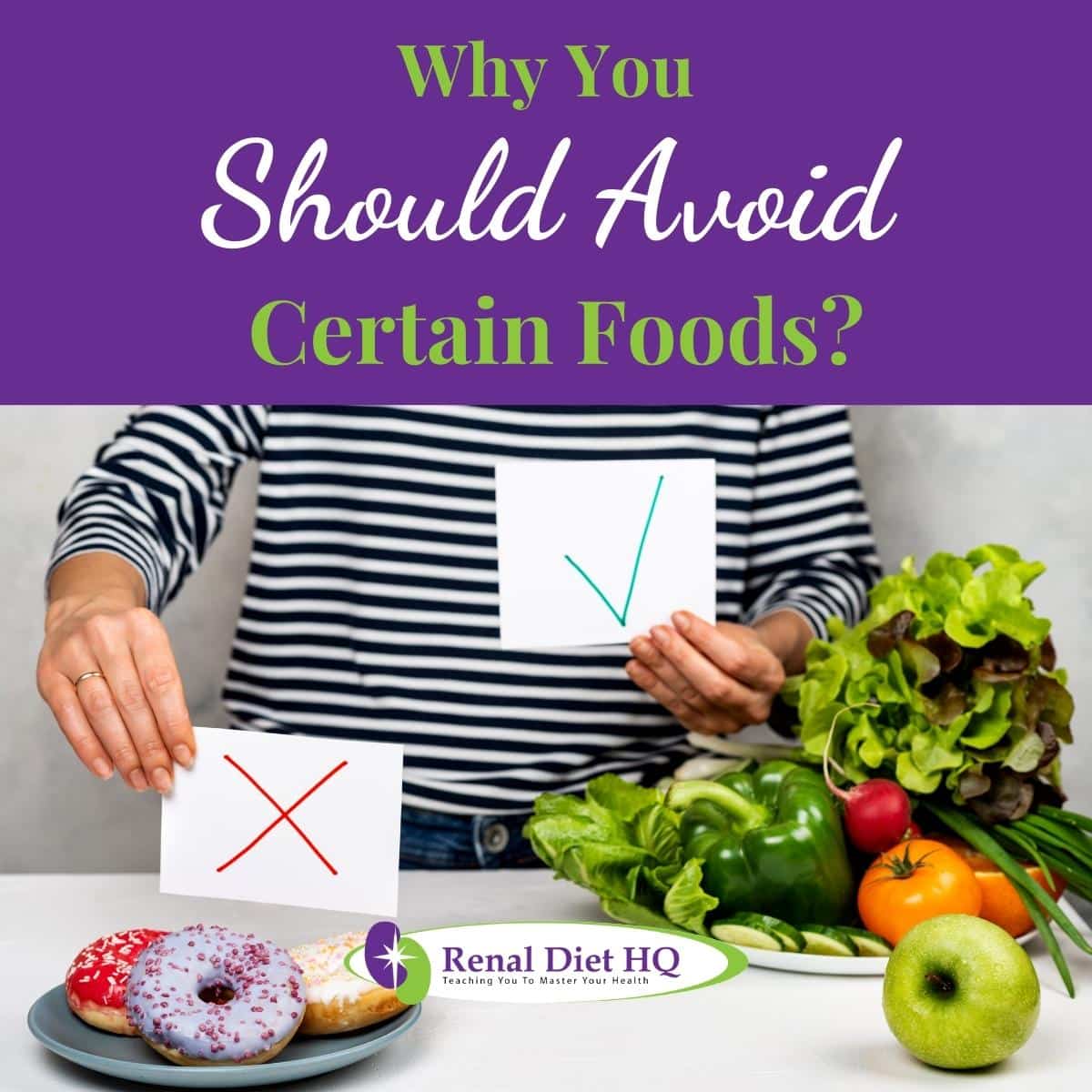
Why You Should Avoid Certain Foods
When it comes to CKD, there are certain foods that should be avoided in order to maintain a healthy lifestyle. Dairy substitutes, food additives and unhealthy fats can all contribute to an increased risk of kidney damage.
It's important for CKD patients to monitor their portion control and hydration levels carefully when choosing what they eat.
Other foods high in sodium or potassium include processed meats and canned goods, which should be limited or completely avoided. Sugary drinks can also have negative effects on those with CKD, so consuming more water is recommended instead.
Healthy fats like olive oil, avocados and nuts come highly recommended by healthcare professionals as part of a balanced diet for those living with the disease.
It’s essential for anyone affected by CKD to speak with their doctor before making any major dietary changes.
Following a specific meal plan tailored to your health needs is one of the best ways to manage your symptoms and decrease the risk of further complications down the line.
Making sure you get regular checkups from your physician will ensure that you remain up-to-date on how best to care for yourself going forward. You can view this list for stage 3 kidney disease foods to avoid.
Can You Eat Some Things In Moderation?
Kidney friendly fruits are usually a safe bet for people with CKD, but you should watch your potassium intake.
Vegetables are great for fiber, but avoid high-sodium canned varieties and opt for fresh or frozen. Grains should be whole-grain and lower in sodium, and dairy should be low in fat.
Sweets and processed foods should be kept to a minimum, as should protein and fats. Sodium, potassium, sugars, and fiber should all be monitored and kept within healthy limits. Alcohol, carbs, and spices should be used sparingly.
Fruits
Fruits are an essential part of a balanced diet, but it's important to pay attention to their fiber content and portion size when living with CKD. Incorporating seasonal produce into your meals is a great way to get the most out of your dietary choices.
Look for food labels that tell you exactly what type of fruit you're buying and also consider different cooking methods such as baking or steaming to reduce sugar intake.
Eating in moderation can be a challenge, particularly if you have specific medical needs, so make sure to consult with your doctor before making any major changes to your eating habits. By following these simple steps, you'll ensure that fruits remain an integral part of your healthful lifestyle!
Vegetables
Moving on to vegetables, they are just as important if not more so than fruits when it comes to eating in moderation. Eating organic is a great way to ensure you're getting the most nutritional bang for your buck and portion control is key!
You can switch up cooking methods such as roasting or sautéing with flavorings like herbs and spices to increase the appeal of your veggies; this also helps reduce added sugars.
Dietary fiber found in many types of produce plays an integral role in keeping our digestive system functioning properly, so make sure you're adding plenty of them into your diet.
With these simple tips, you'll be able to enjoy all that nature has to offer without going overboard.
Grains
What are the best grains for kidney disease? Moving on to grains, they are just as important to include in our diets. Eating high fiber grains like whole grain breads and cereal grains is a great way to ensure you're getting the most nutritional bang for your buck.
Those who have special dietary needs can also look into gluten free or low sodium grains that still contain all of the essential nutrients needed for proper nutrition.
Be sure to read labels before purchasing any food items so you know what you’re putting into your body! Eating healthy doesn't need to be complicated; with these tips, it's easier than ever to enjoy nature's offerings without going overboard.
How Does My Stage Of CKD Affect What I Eat?
Eating the right kind of produce is an important part of managing CKD. Eating healthy fruits and vegetables can help reduce sodium, improve portion sizes, and minimize risk.
But when it comes to CKD, there are certain precautions you should take with your produce consumption to ensure food safety and good health.
When selecting fresh fruits and vegetables, aim for a variety of colors and try to buy organic whenever possible. Be sure to wash all produce thoroughly before eating; this will help remove any bacteria or contaminants that may be present on the surface.
It's also important to pay attention to how much fluid you're getting from these foods as well as other sources like water, tea, juices, etc., since too much fluid intake can lead to further complications in some cases.
Portion control for CKD patients is another key factor in helping manage your condition – don’t forget that larger portions mean more calories!
So make sure you’re aware of what constitutes one serving size so you don’t overdo it when it comes to consuming fresh produce.
By following these tips, along with doctor-recommended dietary changes, you can maintain a healthier lifestyle while minimizing risk when it comes to CKD nutrition.
FAQs for What Produce to Eat or Not Eat on CKD
Eating canned fruits and vegetables with CKD can be a tricky affair for those trying to reduce their sodium and phosphorus intakes. Check out these Low Sodium Canned Foods For CKD.
It's important to always read labels on any canned produce you purchase and check for added salt and other ingredients that could contribute to your total daily intake of sodium or phosphorus.
It’s also important to know that, in addition to salt, ingredients like baking soda, monosodium glutamate, and sodium benzoate also indicate added sodium.
Whenever possible, it's best to opt for fresh fruit and vegetables instead as they don't come pre-packaged with enticing artificial flavors and preservatives.
Organic produce is also recommended as this will help reduce the risk of consuming pesticides which have been linked to potential health risks in CKD patients.
When it comes to produce for CKD patients, the choices between fresh and frozen, organic and conventional, smoothies and juices, raw or cooked, high fiber or low fiber can be overwhelming.
For optimal health benefits with CKD, there are a few key types of produce that stand out:
Red Bell Peppers: Low in potassium while also an excellent source of many nutrients, including vitamin C, vitamin A, vitamin B6, folic acid and fiber.
Onions: Low in potassium and a great source of chromium, which helps your body metabolize carbohydrates, fats and protein. Onions are also rich in quercetin, a powerful antioxidant that helps to lower your risk of heart disease and many forms of cancer.
Cabbage: Low in potassium but high in vitamin K, vitamin C, fiber, and folic acid. There are many ways you can prepare cabbage for a renal diet, including making coleslaw or a topping for fish tacos.
Green Beans: Low in sodium and potassium, and they can assist with proper urine flow to rid the body of toxins. Patients in later stages CKD may need to limit their consumption of green beans, but it can be a beneficial food for those in earlier stages.
Strawberries: Are strawberries kidney friendly? Excellent source of vitamin C, manganese and fiber. They also contain several antioxidants, which help protect body cell structures and prevent oxidative damage.
Pears: Understanding pears and kidney disease is important. Low in potassium and phosphorus, and an excellent source of iron. Pears also contain agents that stimulate the formation of red blood cells to fight anemia in CKD patients.
Blueberries: Are blueberries good for your kidneys? Low in potassium and phosphorus but an excellent source in many nutrients, such as Vitamin C, manganese, and fiber. Their natural compounds assist with reducing the signs of aging and inflammation.
Apples: Are apples good for your kidneys? Low in phosphorus, yet an excellent source of fiber. Apples can also help to relieve constipation, reduce cholesterol, and protect against heart disease and cancer.
Red Grapes: Low in phosphorus and potassium, and high in flavonoids, which assist with proper blood flow and protect against heart disease, cancer, and inflammation.
Enjoy Healthy Produce With Your Renal Diet
Eating a well-balanced diet is key to managing CKD. Produce can be an excellent source of essential vitamins and minerals, but it’s important to stay mindful of its sodium content.
It is important to avoid foods that are high in potassium, phosphorus, or sodium when suffering from chronic kidney disease.
With the right choices and portion sizes, you can make sure your plate is loaded with healthy fruits and veggies that will give your body the nutrition it needs. As always, it’s important to understand what stage of CKD you are in when creating a meal plan for your body.


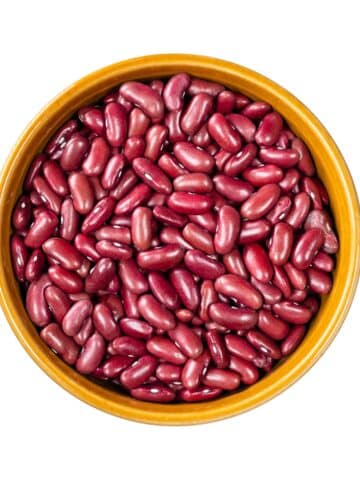
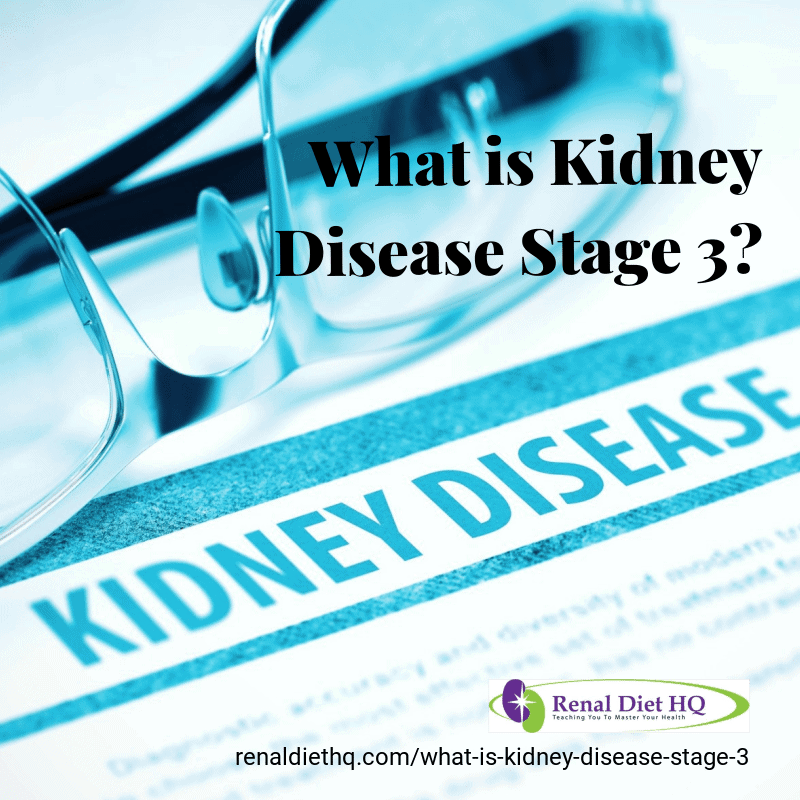
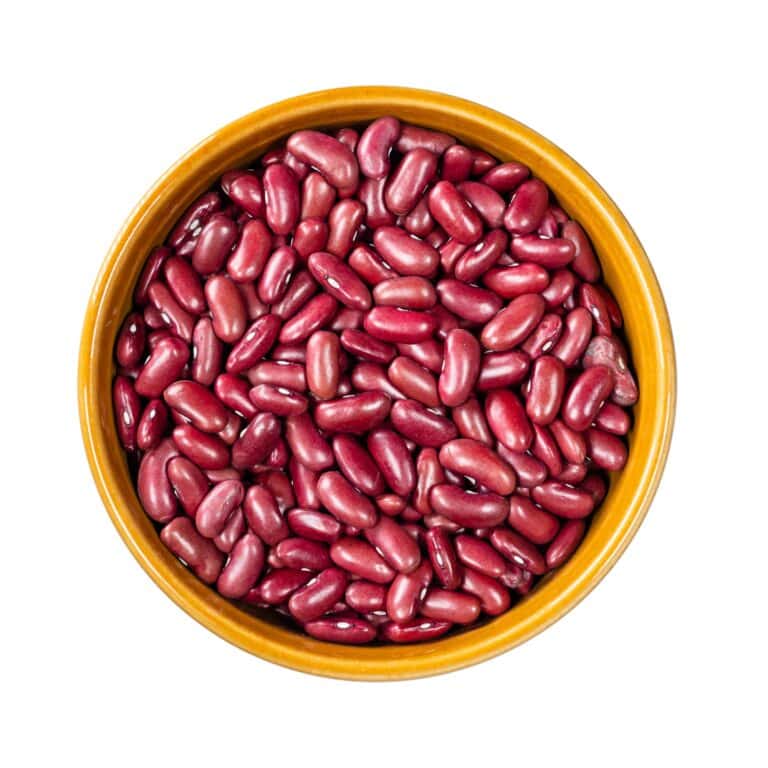
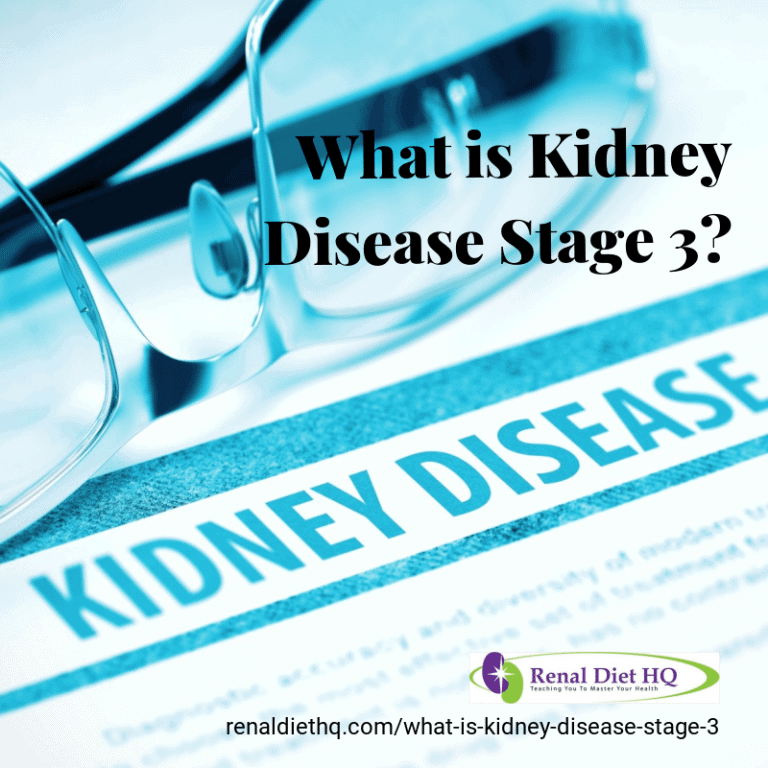
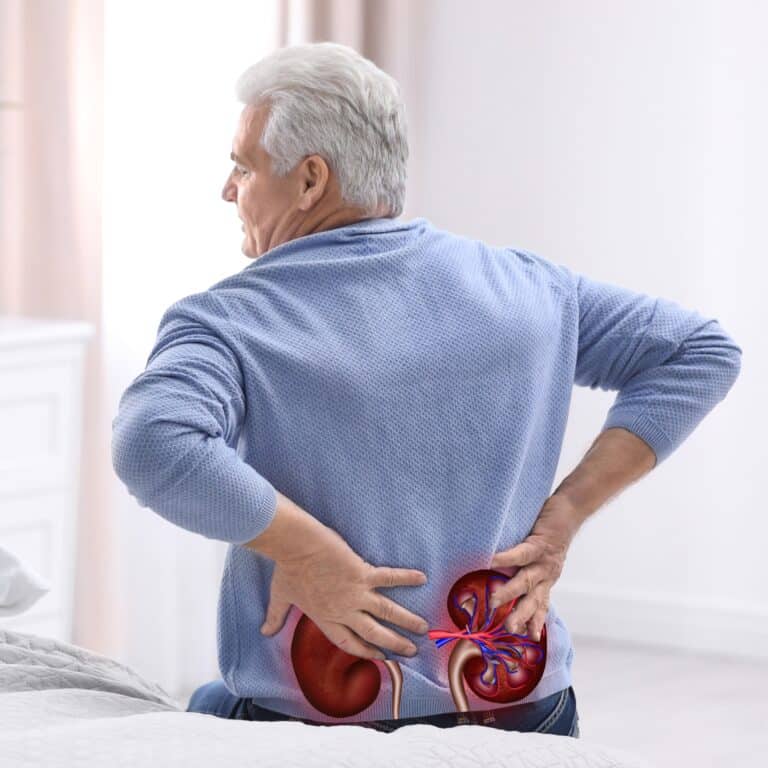

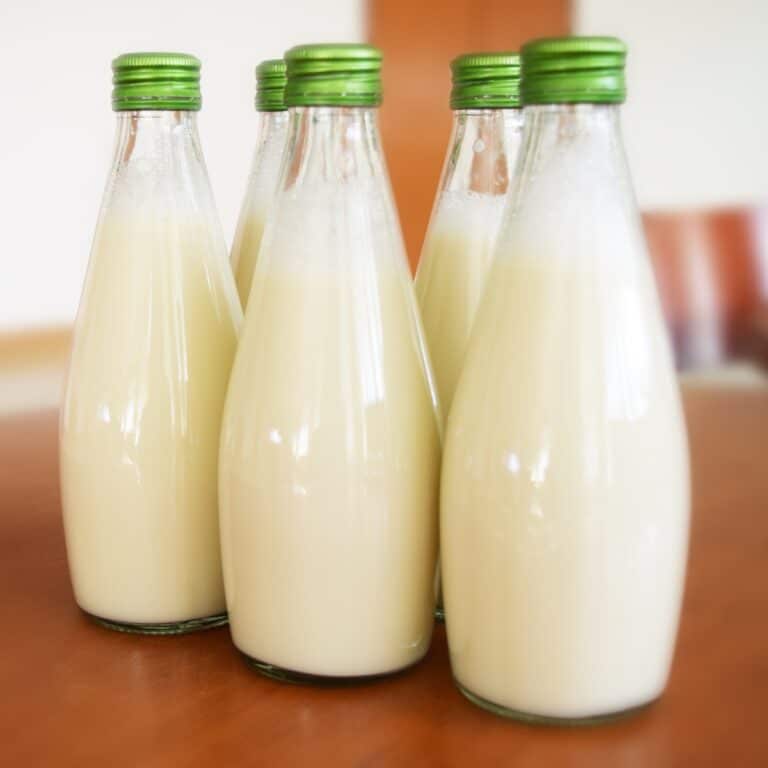
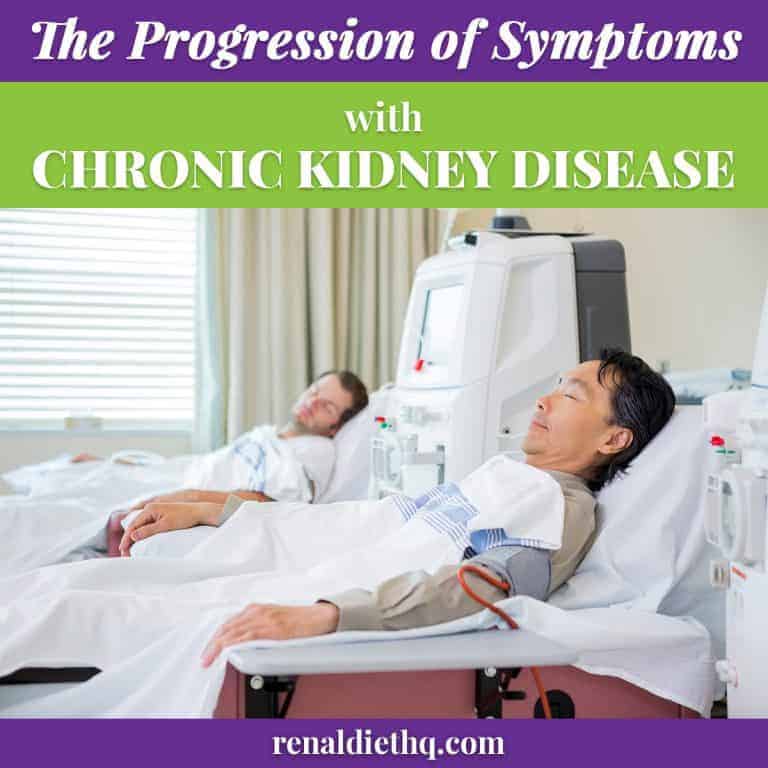
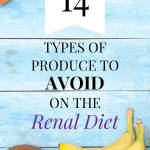
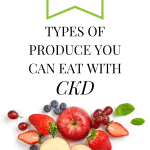
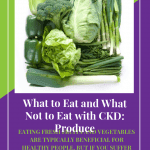
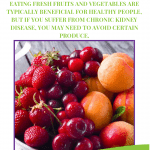
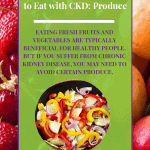
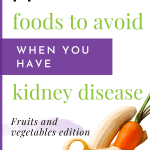
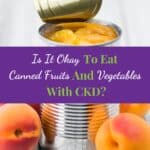
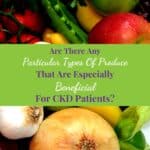
Very helpful article. Thank you